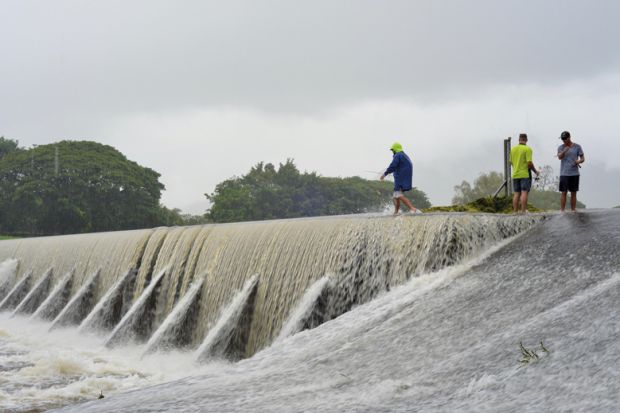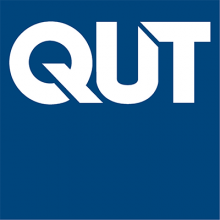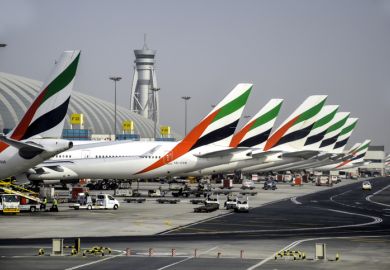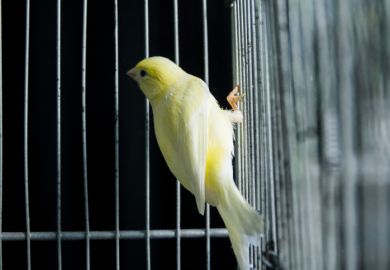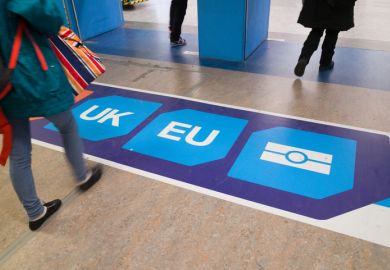Some Australian universities are moving to limit international recruitment amid fears that they are becoming hooked on foreign tuition fees.
Overseas student inflows have soared as public funding rates have declined. Universities in New South Wales’ earnings from international students doubled between 2014 and 2018, with the state’s two biggest institutions making more from foreign students than domestic fees and government grants combined, according to an auditor-general’s report released on 31 May.
Some universities are calling time on rampant international recruitment, saying that the financial reliance is unsustainable. The governing council at the University of Technology Sydney has endorsed what vice-chancellor Attila Brungs calls a “guideline” to limit foreigners to 30 per cent of students.
Queensland University of Technology is keeping international enrolments below 20 per cent, while the University of Tasmania has set an “upper number” for the share of overseas students, according to vice-chancellor Rufus Black.
Last July, Australian National University vice-chancellor Brian Schmidt vowed not to allow international enrolments to increase any further. His move followed unprecedented overseas recruitment at the top-tier universities of southeastern Australia, with confidential data showing that overseas enrolments had soared by between 49 and 99 per cent over the three years from 2014. Foreigners accounted for 46 per cent of full-time equivalent student numbers at the top-ranking University of Melbourne, according to its 2018 annual report.
At Tasmania, overseas student numbers grew 36 per cent between 2014 and 2017 with international fee revenue rising another 22 per cent last year. The university was named in a recent television report alleging that entry requirements for foreign students were being waived, prompting it to commission an independent review of its admissions.
International enrolments at UTS rose by 54 per cent between 2014 and 2018, increasing the foreign share of the student body from 28 to 34 per cent. Professor Brungs said that the surge of the past two years had triggered internal discussions about the appropriate proportion of overseas students.
He said that about 30 per cent would deliver “the benefits of different worldviews in the student body”, while limiting the impact that excessive concentrations of foreigners could have on the student experience of both locals and foreigners.
QUT’s international student share reached 18 per cent last year after overseas enrolments grew 12 per cent in four years. Deputy vice-chancellor Scott Shepherd said that the university took a “cautious rather than conservative” approach to international student conscription.
“I worry – and I probably haven’t made friends by saying it publicly – that it’s starting to impact negatively on the perception of [Australia’s] education,” he said.
Professor Black said that international students were crucial to Tasmania from an educational and financial perspective. “For a relatively homogeneous place like Tasmania, it adds enormously to the educational quality,” he said. “And we need people from off the island. A university in a modern global economy isn’t fundable by the children of half a million people.”
Professor Black declined to specify Tasmania’s target for international student share, saying that he did not want to risk “simplistic” interpretations. “You can have a 30 per cent cap where 95 per cent of international students are in five courses. Alternatively, you might have 40 per cent spread across a whole university – that could be a very good thing,” he said.
Register to continue
Why register?
- Registration is free and only takes a moment
- Once registered, you can read 3 articles a month
- Sign up for our newsletter
Subscribe
Or subscribe for unlimited access to:
- Unlimited access to news, views, insights & reviews
- Digital editions
- Digital access to THE’s university and college rankings analysis
Already registered or a current subscriber? Login
